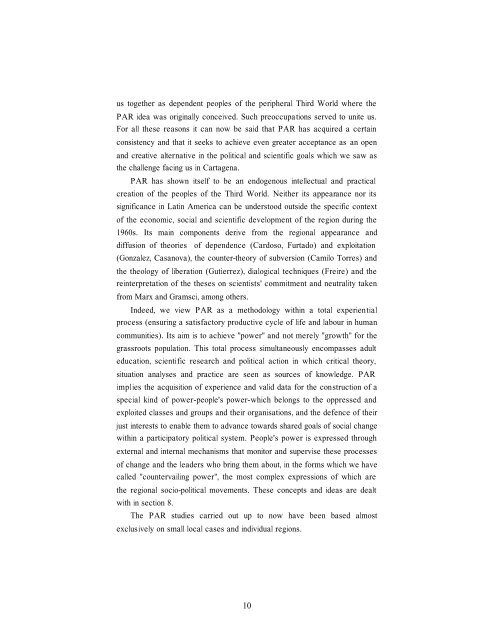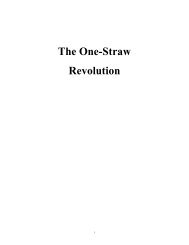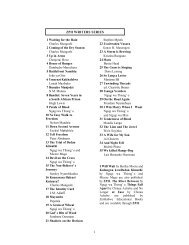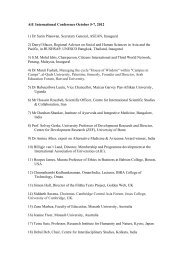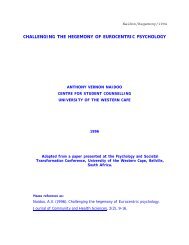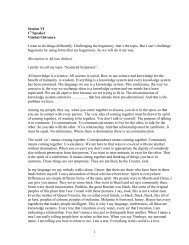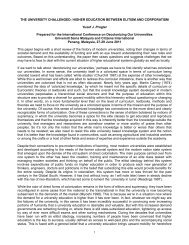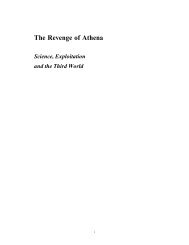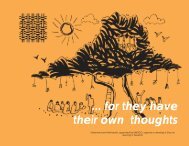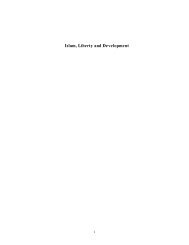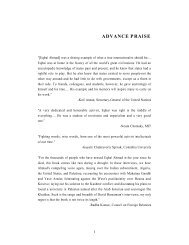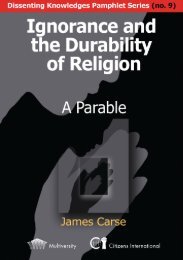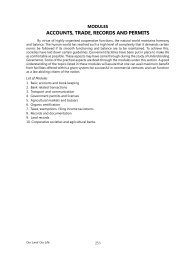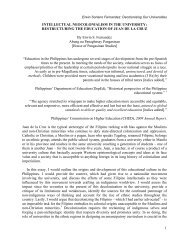Knowledge and People's Power - Multiworld India
Knowledge and People's Power - Multiworld India
Knowledge and People's Power - Multiworld India
- No tags were found...
You also want an ePaper? Increase the reach of your titles
YUMPU automatically turns print PDFs into web optimized ePapers that Google loves.
us together as dependent peoples of the peripheral Third World where thePAR idea was originally conceived. Such preoccupations served to unite us.For all these reasons it can now be said that PAR has acquired a certainconsistency <strong>and</strong> that it seeks to achieve even greater acceptance as an open<strong>and</strong> creative alternative in the political <strong>and</strong> scientific goals which we saw asthe challenge facing us in Cartagena.PAR has shown itself to be an endogenous intellectual <strong>and</strong> practicalcreation of the peoples of the Third World. Neither its appearance nor itssignificance in Latin America can be understood outside the specific contextof the economic, social <strong>and</strong> scientific development of the region during the1960s. Its main components derive from the regional appearance <strong>and</strong>diffusion of theories of dependence (Cardoso, Furtado) <strong>and</strong> exploitation(Gonzalez, Casanova), the counter-theory of subversion (Camilo Torres) <strong>and</strong>the theology of liberation (Gutierrez), dialogical techniques (Freire) <strong>and</strong> thereinterpretation of the theses on scientists' commitment <strong>and</strong> neutrality takenfrom Marx <strong>and</strong> Gramsci, among others.Indeed, we view PAR as a methodology within a total experientialprocess (ensuring a satisfactory productive cycle of life <strong>and</strong> labour in humancommunities). Its aim is to achieve "power" <strong>and</strong> not merely "growth" for thegrassroots population. This total process simultaneously encompasses adulteducation, scientific research <strong>and</strong> political action in which critical theory,situation analyses <strong>and</strong> practice are seen as sources of knowledge. PARimplies the acquisition of experience <strong>and</strong> valid data for the construction of aspecial kind of power-people's power-which belongs to the oppressed <strong>and</strong>exploited classes <strong>and</strong> groups <strong>and</strong> their organisations, <strong>and</strong> the defence of theirjust interests to enable them to advance towards shared goals of social changewithin a participatory political system. <strong>People's</strong> power is expressed throughexternal <strong>and</strong> internal mechanisms that monitor <strong>and</strong> supervise these processesof change <strong>and</strong> the leaders who bring them about, in the forms which we havecalled "countervailing power", the most complex expressions of which arethe regional socio-political movements. These concepts <strong>and</strong> ideas are dealtwith in section 8.The PAR studies carried out up to now have been based almostexclusively on small local cases <strong>and</strong> individual regions.10


